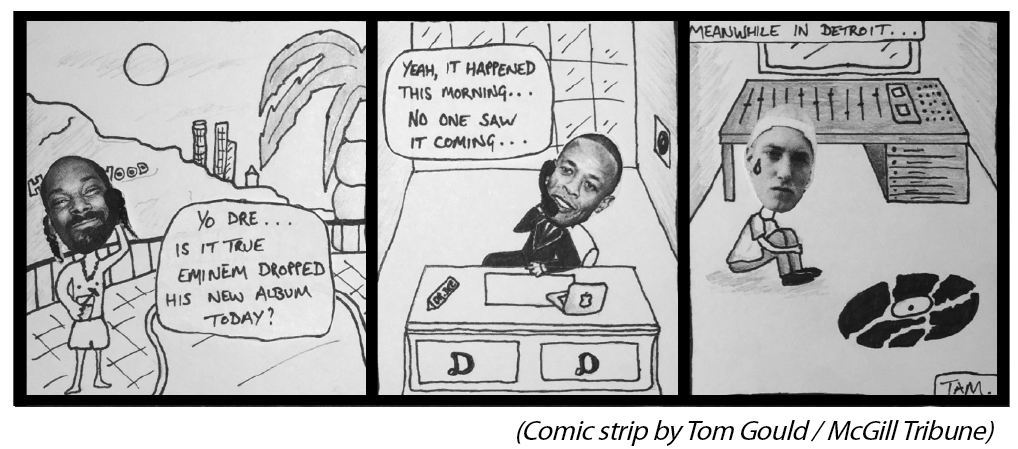In the face of rampant piracy, record labels have struggled to convince consumers to spend money on music. More specifically, the album format—once the industry’s largest source of revenue—has become too expensive for the average listener. Consumers’ listening habits are increasingly shifting towards faster, more digestible formats like iTunes’ $0.99 single, which have fragmented the cohesive conceptual nature of albums in favor of a more selective listening experience. It’s in times like this that the music industry could use it’s own caped crusader to revolutionize the way that way that we listen to music.
Cue a multi-platinum, 32-year-old superstar in the prime of her career to drop a brand new album out of the blue. Yes, Beyoncé, a woman whose achievements, talents, and renown blew minds everywhere with her surprise release of a self-titled album at the end of 2013. In a case study at Harvard Business School, Marketing Professor Anita Elberse noted that by releasing the album without an accompanying marketing campaign, the move risked wasting millions of dollars. In addition to being a bold marketing strategy, the album could be purchased only as a single package of 14 songs and music videos on iTunes, which encouraged listeners to experience it in its entirety. The record was a critical and financial success, selling 430,000 digital copies within the first 24 hours of its release and five million copies worldwide by November 2014. Does Beyoncé demonstrate the capacity for the album format to hold up in the age of digital music distribution, or was the album’s success simply the convenient confluence of her celebrity status, the support of major corporations, and the seductive appeal of surprise?
Beyoncé unquestionably paved the way for other musicians to release surprise albums through similarly unconventional marketing strategies. However, these albums rarely attained the same level praise and unprecedented financial success. In September of 2014, U2 released its 13th studio album, Songs of Innocence, by syncing it automatically onto the Apple devices of 33 million iTunes users at no cost. The album was heavily criticized because it was downloaded without the users’ consent, so much so that it received more attention for being an invasive breach of privacy than for the quality of its content.
After a 14 year-hiatus, D’Angelo released Black Messiah in December of 2014. While the album has long been anticipated by his fans and wasn’t expected to be released until 2015, D’Angelo decided to expedite the release in response to the judicial rulings in the Ferguson and Eric Garner cases in 2014. With the combination of the album’s relevant themes of race, its innovative instrumentation, and listener anticipation that had accumulated over a decade and a half, the album’s surprise release was as warmly received by critics as was Beyoncé. However, most likely because D’Angelo lacks the same celebrity status of Beyoncé, Black Messiah was far less financially successful. It sold only 117,000 copies in the U.S. in its first week of release as opposed to Beyoncé’s 600,000.4
More recently, a number of albums have had botched releases because of record labels’ failure to uphold their artists’ intentions. Kendrick Lamar’s To Pimp a Butterfly was released a week ahead of its scheduled release date because of an error on the part of Interscope Records. Similarly, Sony Music unapologetically unveiled the cover art, tracklist, and release date of Earl Sweatshirt’s I Don’t Like Shit, I Don’t Go Outside a week before its release, despite his desires to leave these details unknown. While each of these albums still garnered much critical claim and delighted fans with the element of surprise, they are unfortunate examples of how easily the bureaucracy of a major record label can undermine the power of an album release.
For the time being, it seems that Beyoncé is the only surprise album to have achieved critical and financial success without having to sacrifice the cohesion of the album or the artist’s artistic statement—an album, which, while demonstrating the power of alternative marketing and distribution strategies, is more likely an idiosyncratic triumph than a formula for success.









